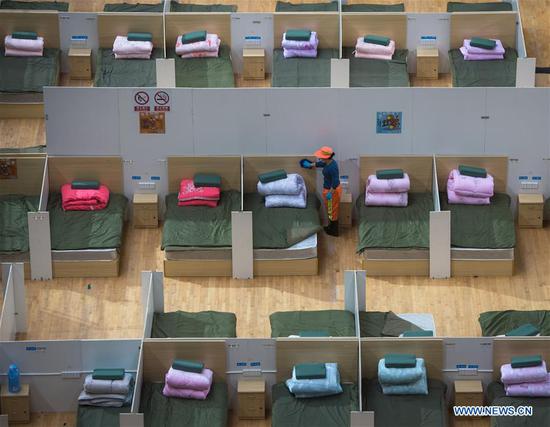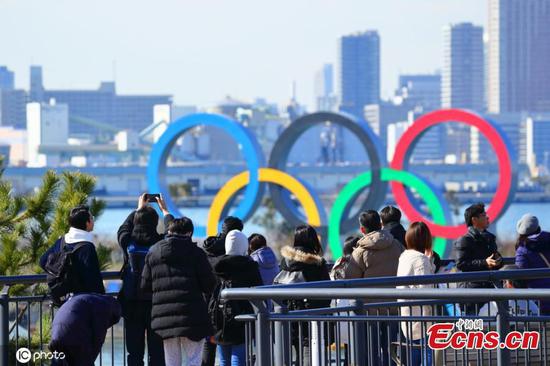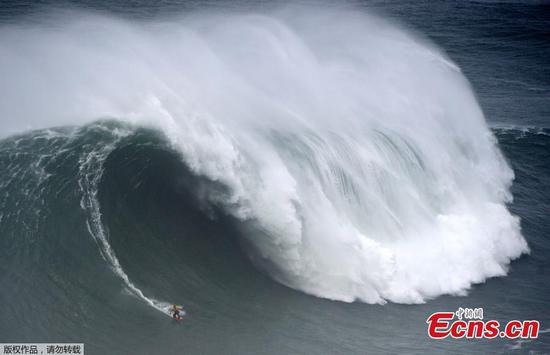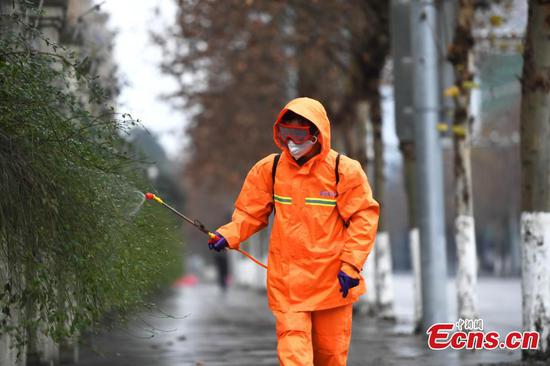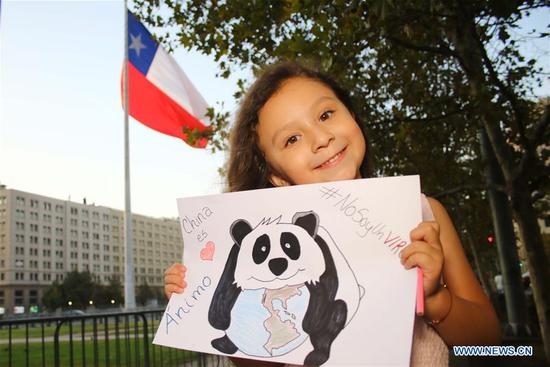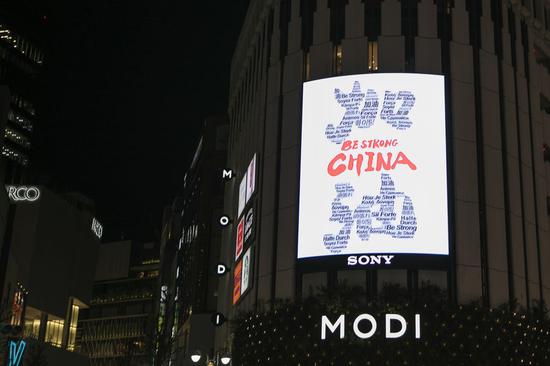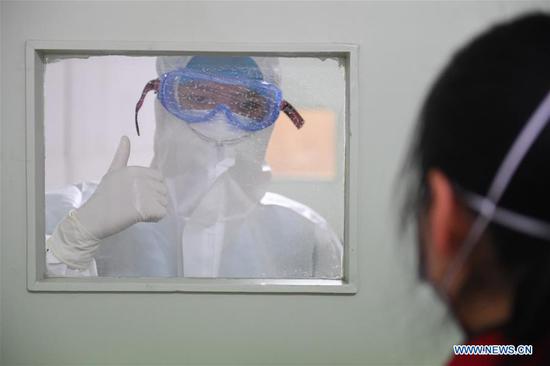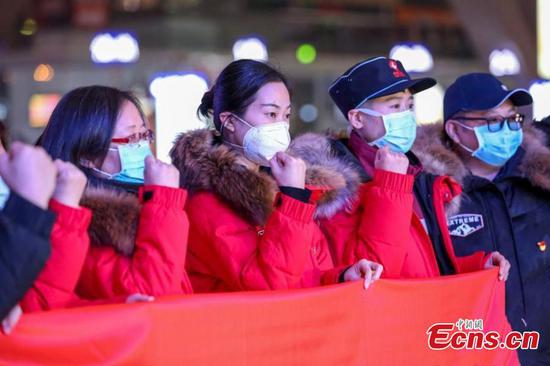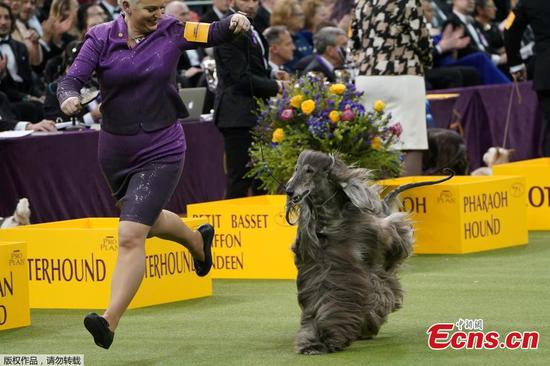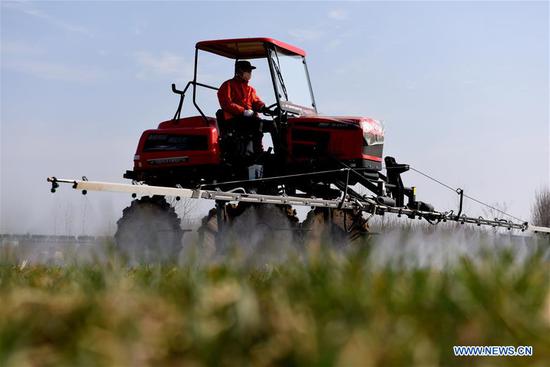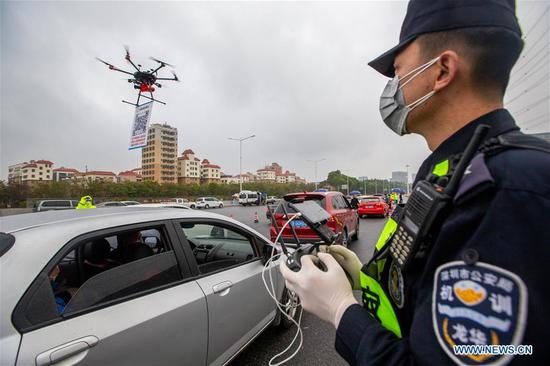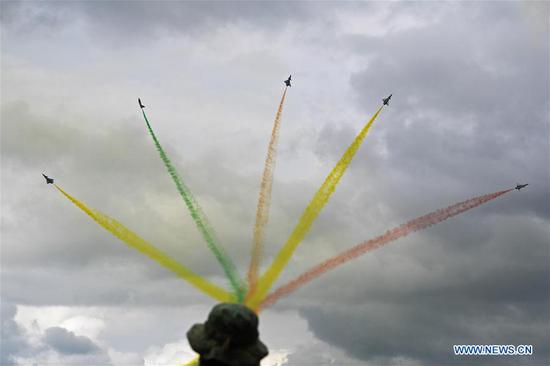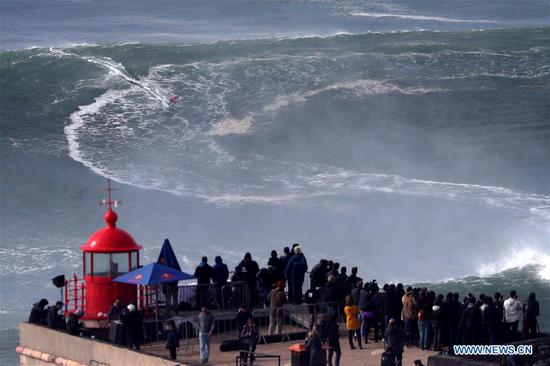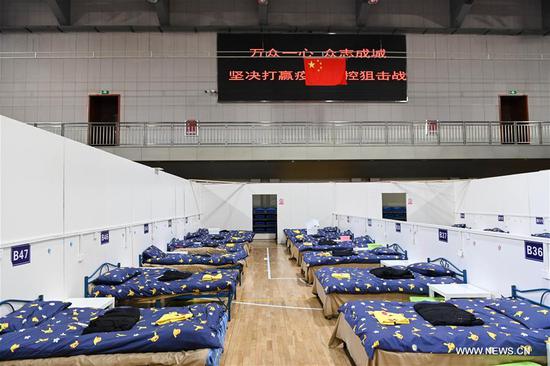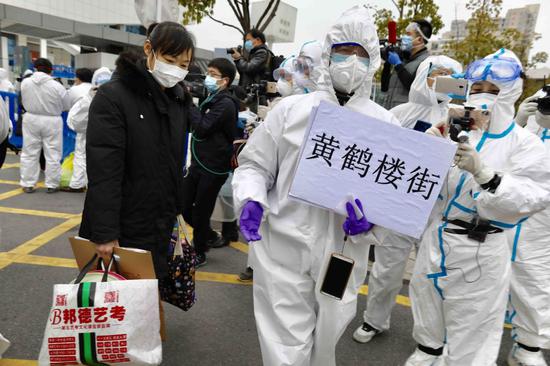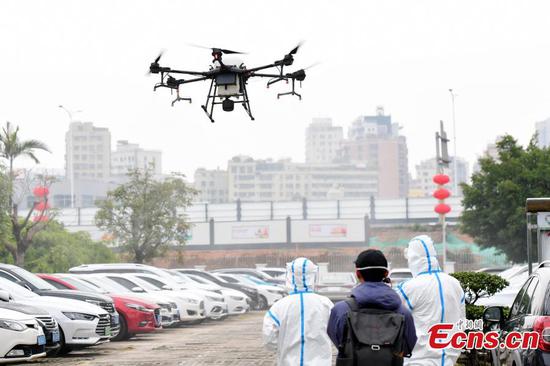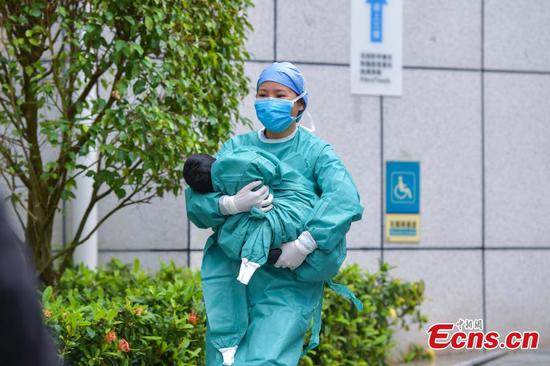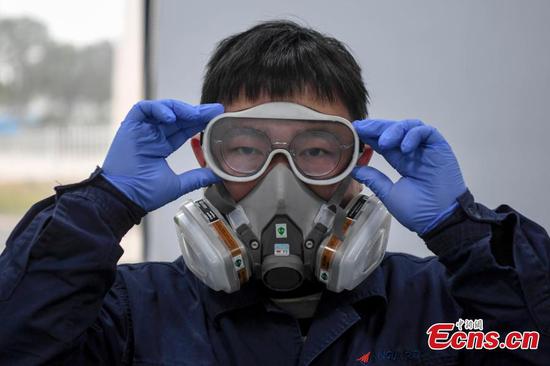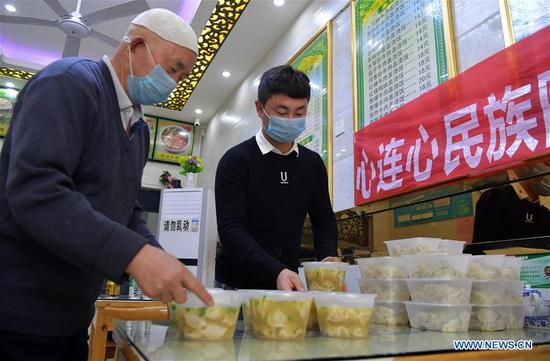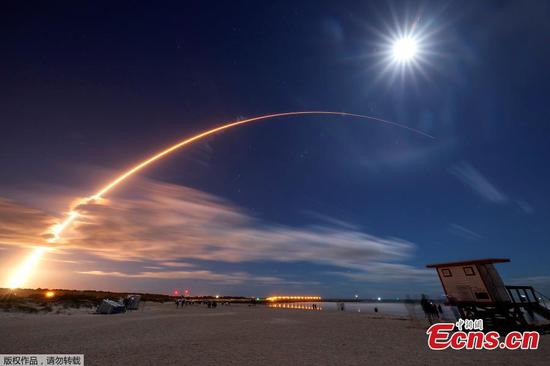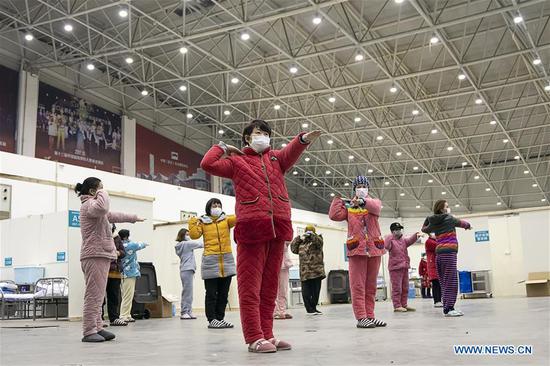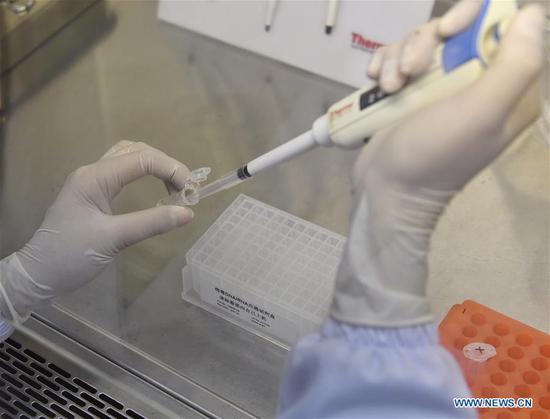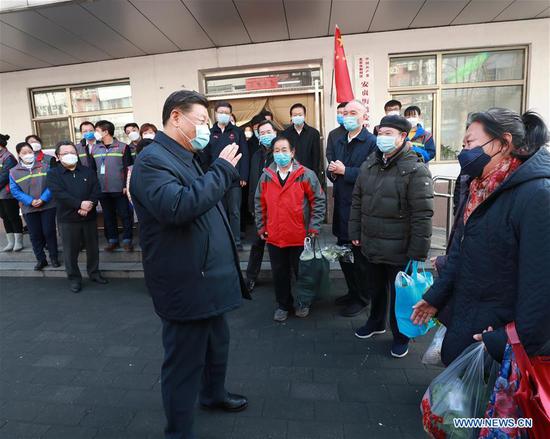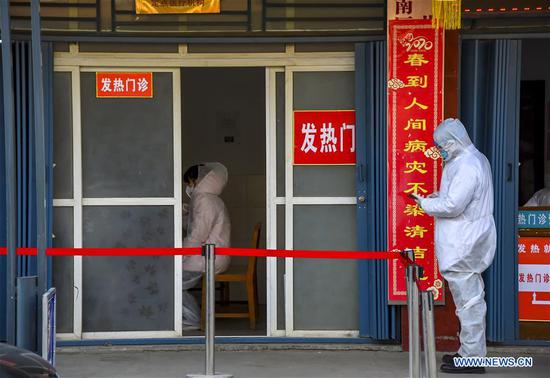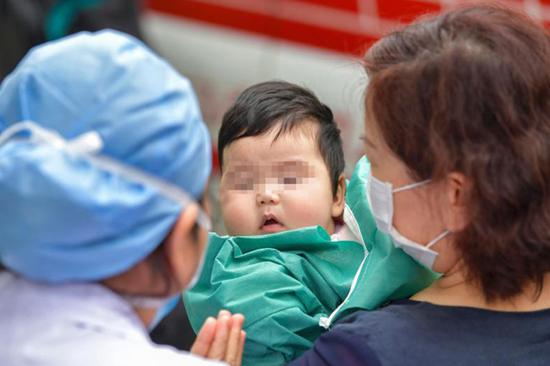
A digital billboard showing "Be Strong China", conveying support to China in fighting the novel coronavirus epidemic, is seen at Shibuya in Tokyo, Japan on Monday. (DU XIAOYI/XINHUA)
Poetry and calligraphy showcase bonds as Tokyo reaches out to offer assistance
When the American writer Patrick Rothfuss said, "Words can light fires in the minds of men, words can wring tears from the hardest hearts," could he possibly have imagined that some words would be powerful enough even after a 1,000 years to still produce tears? Well that is exactly what happened.
As China fights against the novel coronavirus, many sayings have been circulating on Chinese social media recently with one thing in common: they were written in Chinese and printed on packages donated to China by Japan.
Among them, one saying, written about 1,300 years ago by a Japanese prince was sent to Wuhan, the epicenter of the outbreak, together with masks and infrared thermometers. It read: "Even though the landscapes are diverse, we share the wind and moon under the same sky."
Chen Wan, who works in the international office of Huazhong Agricultural University in Wuhan, said: "Tears welled up in my eyes when I saw the words on the package."
Chen, who regularly deals with the Japanese in the course of her work, said she is very grateful for Japan's help.
"These words have greatly encouraged Wuhan's people. China and Japan both have Confucian cultural origins and some things that the Japanese have done have make me feel that Wuhan is not alone in this fight, and that we will eventually conquer this epidemic because we are protected by love and friendship."
Of course, helping those in hardship can come in many forms, something that Tedros Adhanom Ghebreyesus, the director-general of the World Health Organization, would no doubt have had in mind when he made a plea at a forum on the novel coronavirus in Geneva on Tuesday.
The serious measures China is taking in Wuhan and other cities against virus calls for countries to show solidarity with China, he said.









